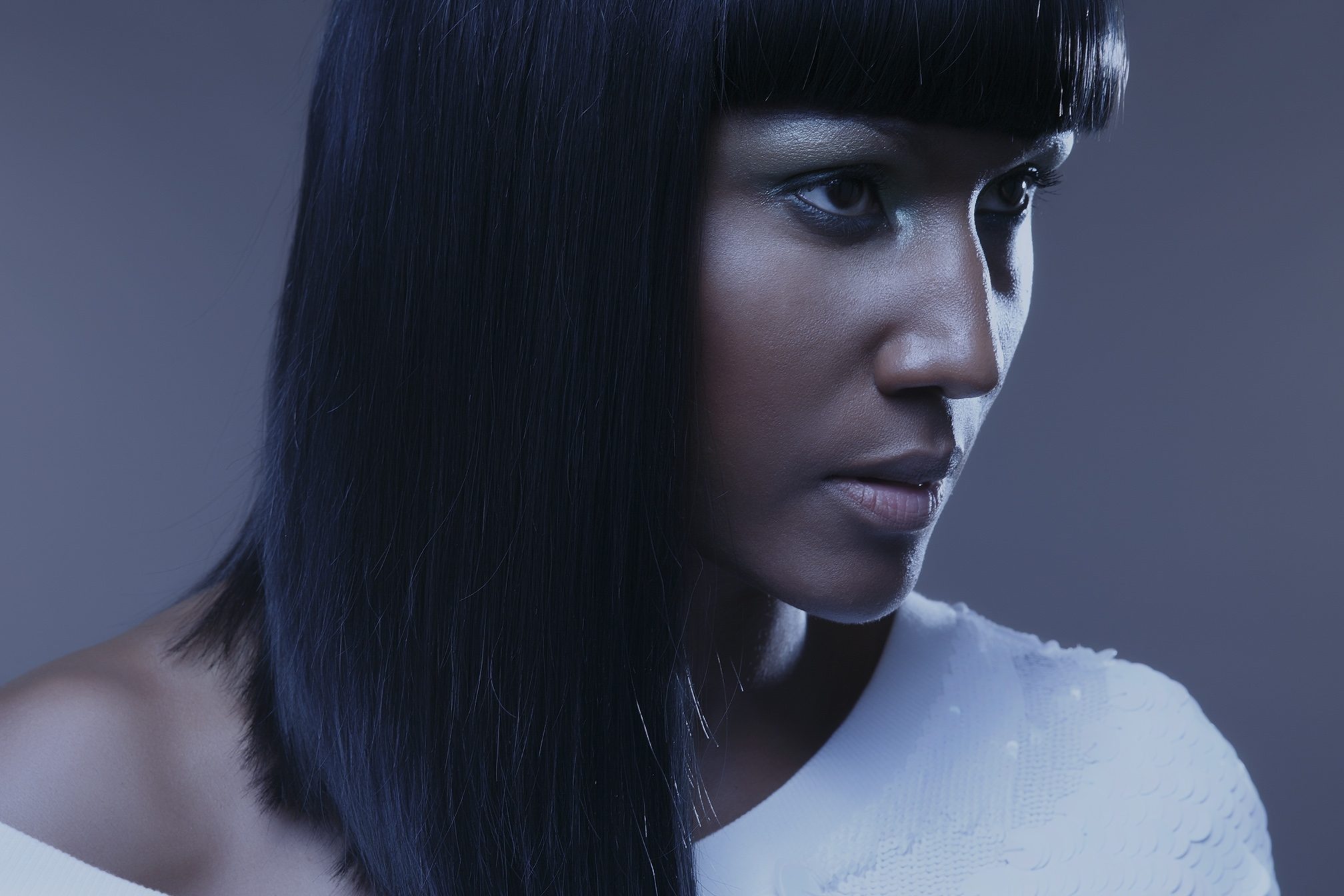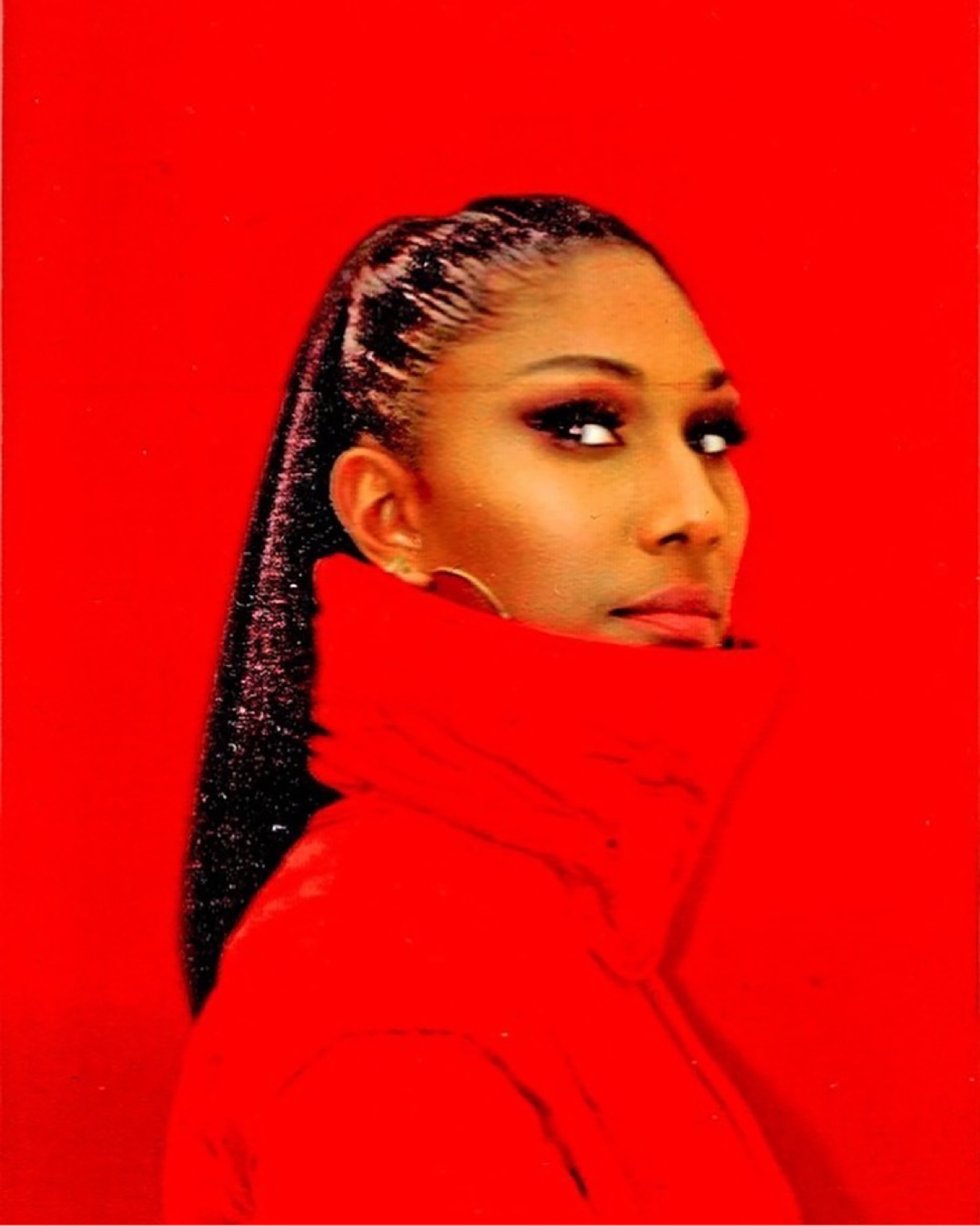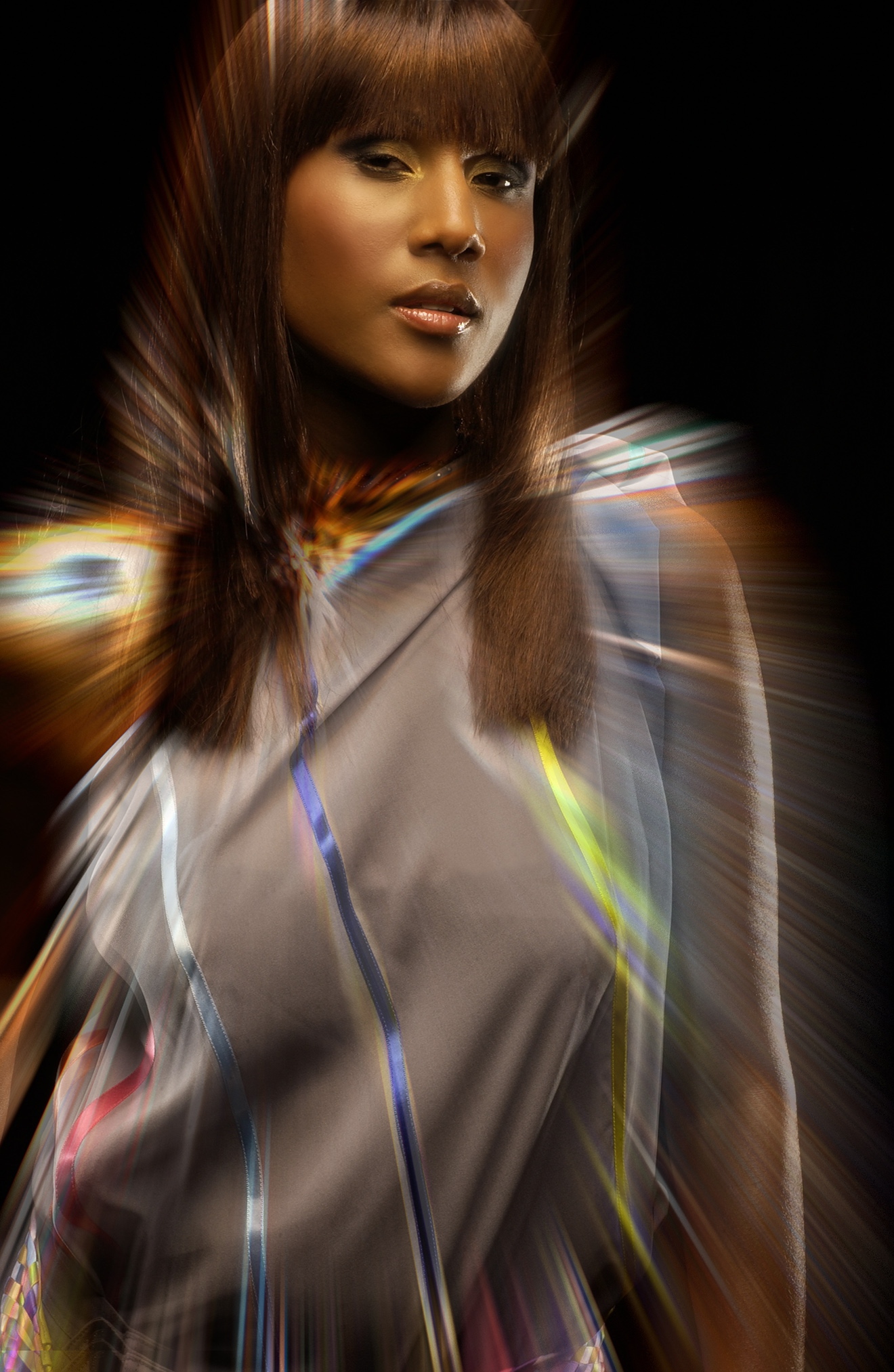 Features
Features
Smokin' Jo's life story isn’t the usual glossy superstar DJ biography
Smokin' Jo's autobiography 'You Don’t Need A Dick To DJ' is an inspiring and at-times brutal tale, detailing a turbulent adolescence and rise to become one of UK's most legendary DJs. She speaks to Manu Ekanayake about her remarkable life and challenges along the way
“It's hard, isn't it? When you're born in this country you're so English but sometimes people don't think you are. And then you go back to where you're originally ‘from’ and you're not, you're English.” Smokin’ Jo and Mixmag are swapping stories as grown-up third culture kids visiting our relative diasporas; she’s from a mixed background of a Trinidadian-Indian mother and Nigerian father, I’m of Sri Lankan parentage. This was the first revelation we shared but there are many others in Jo’s defiantly no-holds-barred new memoir You Don’t Need A Dick To DJ, out now on White Rabbit Books. The book features photos from Jo’s personal archive on each chapter’s title page, but afterwards the various types of abuse she’s suffered over the years form a subtitle for each chapter too. Some are what we would now call microaggressions (‘You’re Pretty For A Black Girl’ is a haunting example from the first chapter, as is casually racist classic ‘Is That Your Real Hair?’) but some are just openly hostile (‘You’re Shit!’ or the brief and the viciously to the point ‘I Hate N******!’ just before Jo is the victim of a racial attack in the street while on the way to the seminal after party Trade). These subtitles are just one early sign that this isn’t the usual glossy DJ biography. Instead, Jo and her co-writer Terry Ronald tell an at-times brutal tale, but also an inspiring one that encompasses many of the issues we’re now finally talking about more openly in dance music and within society more generally: racism, sexism and outright misogyny, gaslighting in relationships, being an abuse survivor, the list goes on. But these aren’t just watchwords for Jo; they’re things she has experienced in real life, as she tells us when we get together to speak about the book.
Read this next: An oral history of revolutionary LGBTQ+ party Trade
Even with the flu and over Google Meets, Jo’s got a steely focus, as you would expect from someone who’s been DJing internationally since the ’90s. Mixmag thought we knew a few things about Smokin’ Jo, despite us never having met before. One being that she was Black – which is actually only half her story, as she mentions early on in her memoir. You might know Smokin’ Jo as a DJ who plays underground house and techno and has done so for over 30 years, since her early ’90s sets at Trade got her noticed and booked all over the UK and by 1993 in Ibiza and further afield too. She was so popular that she won best DJ in DJ Mag’s Top 100 DJ poll in 1992, still the only woman to achieve this accolade, which is itself quite an indictment for clubland’s gender politics.

But what you probably don’t know about Joanne Joseph is that she was placed in care alongside her older sister Deanna at just 7 months old, then at 5 years old moved into a children’s home where both suffered the worst kinds of mental, physical and especially racial abuse. Jo remembers how difficult it was just to survive at Hambro House children’s home in Putney, West London, in the ’70s. “It was just destructive because I didn't feel like I belonged or that I meant anything. I was told every day that I was no good: firstly because I was Black, secondly because I was female and thirdly because nobody wanted me. 'Your parents don't want you' was always thrown at me, as if I was a piece of shit on the floor. So I had very low self-esteem.”
Jo continues, “I didn't know that I was Black, for one; I mean I'm mixed, I'm Brown. My mum was very fair-skinned and she did come to visit us. So my identity was all over the shop. I thought I was white, then realised I wasn't. Then I wanted to be white and didn't want to be Black. So I was a bit of a mess,” she laughs, covering her pain with self-deprecation in a very British way, just as she was taught in the quasi-military environs of Hambro House, where beds had to be made for inspection every morning or punishments (often involving beatings and forced nudity) would be handed out. In this prison-like structure the values of a British society that had no place for Jo were hammered into her anyway. Small wonder, then, that she would grow up into an adult who, even when succeeding as an up-and-coming DJ, would seek validation in abusive relationships and excessive drug use.
Read this next: DJ Paulette has always been one step ahead
But that’s to skip ahead a little. Things get better for Jo after that traumatic first chapter. Now nine, she and her sister are rescued by their mother, who takes them to live with her in Notting Hill. Late ’70s multicultural Notting Hill would be a thrilling experience. “My eyes were opened and I thought, 'Yeah, I can get with this now!’” But one of the few pleasures in Jo’s life had been her Roehampton primary school, which was now to change. “That was quite annoying because my new school just wasn’t as good. The attitude was that you’re going to be stupid anyway so we won't even bother. I think what was good about growing up in that white suburban place was that I had a good education and I became more confident because of that. So I felt like I could say what I needed to say.” This is something that becomes clear throughout the book and especially to Mixmag as we speak. These stories, as painful as they can often be, are things she’s worked through before – in rehab for what she calls ‘habitual’ drug use as part of her DJ life and in therapy too. Indeed the book opens very entertainingly with Jo’s journey to rehab, which becomes the root to her life becoming a lot happier in general.
One of the prime sources of this happiness is music. From the first time she hears house music at a nightclub, we see Jo, who was a model at the time and already no stranger to London nightlife thanks to the ’80s not being much for photo ID, have her life taken over by it — first as a committed raver and then eventually as a DJ in her own right. So Mixmag has to ask Jo why dancefloors can seem so white nowadays and if that was always the case? She replies: “Well, England is a majority white place and most Black people will go to a hip hop or R&B party or whatever. But we were there in the beginning. All the clubs I went to, like [queer club] Jungle and [Nicky Trax’s] Confusion, plus anywhere guys like Paul ‘Trouble’ Anderson, who sadly died of cancer in 2018, and Kid Bachelor played. There was a strong presence at the big M25 raves and at the more underground parties too.” Jo also shares her thoughts about why such pioneers never got the success that she did: “They played an underground Black, soulful sound. And I played more across the board, which I think is why I got through in the end. But they definitely didn’t get the credit that many white DJs of that era did.”

So we have to ask, in a post George Floyd and Black Lives Matter world, has there been real change in clubland? Here, Jo is cautiously hopeful. Cautious because: “I think people have made more of an effort and I’ve seen more coverage in the media and bookings at gigs, especially for Black women. It’s probably still tokenism to some extent, but it’s still something.” But hopeful due to the new generation of Black female DJs. “These new artists like Jaguar and TSHA tell me I’m their idol and it’s so lovely to hear!” she smiles, sharing that they said at a recent IMS panel that she and DJ Paulette are “their fairy godmothers.” It’s obvious that this means a lot to Jo, who struggled for so long to feel a genuine sense of self-respect. Her pride in the younger generation of Black female DJ talent is obvious, as is that which comes from the respect they pay her. If anyone earned that the hard way, Jo did.
Read this next: Incandescent teacher: Honey Dijon is lighting up the world of dance music
Because self-respect is a difficult thing to come by if you grow up the way Jo did. She describes it as being “always in survival mode, to try and see the next danger coming. It was horrible but it was also completely normal.” But self-respect is the key to her story as it’s a fundamental trait for a happy person. The book sees Jo travel through her DJ life and her personal relationships, many of which she struggles with due to never having seen a happy example at home. However, one good result of a failed relationship is that she trains as a yoga teacher in 2016. Since then she’s run her yoga brand, Smokin’ Joga, alongside DJing and has managed to find room for herself in the world of wellnesss too. This is something she discusses near the end of the book, where she found her own voice (“not twisted by alcohol or drugs, but authentically me”) as she has to guide students through her classes, drawing on her dance and modelling background but learning new skills as a teacher as well. This built the confidence to make her happier within herself than she’s ever been before. Because while Smokin’ Jo is the one credited on the book’s front cover, this is really the story of how Jo came to love and respect Joanne Joseph. And both are all the better for it.
You Don't Need a Dick to DJ is out now via White Rabbit Books, buy it here
Manu Ekanayake is a freelance writer, follow him on Twitter


